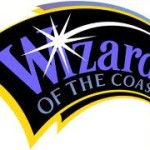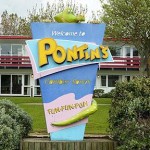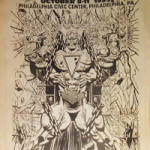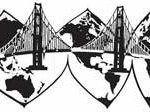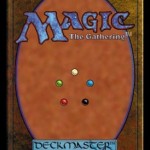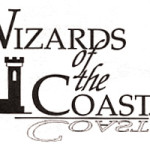
As we conclude our look back at the first year of Magic: the Gathering, and the conventions I went to, we come full circle and return to Gen Con for the one year anniversary.
When we left off last time, I had just returned from England and Euro Gen Con. The next several months saw an insane amount of activity; as Magic: the Gathering exploded into the market, Wizards of the Coast found itself in a constant state of trying to keep up with the growth. That meant we needed a lot more people than we had before, and they were not all going to fit into Peter Atkinson’s basement.
So, in January of 1994, we moved into a pair of buildings in an industrial park, in Tukwila, Washington. My first role, at this new location, was in facilities (making sure we had drinks, snacks, and all of the sundry office supplies, along with other similar logistic duties). Eventually it became clear I was not really cut out for that kind of work and, when Gen Con rolled around, I was in the process of moving over into customer service, where I was a much better fit. During the first half of 1994, it seemed like we were bringing on new people constantly. More members of the Camarilla board of Directors joined the company, as well as several other club members by association. My sister Jillian was hired during this period to be part of Merchant Relations, our retail-specific customer service department.
Magic: The Gathering continued to sell at an astounding rate. By the time Gen Con rolled around, we were already on the third edition of the game. We also had released 3 expansion sets: Arabian Nights, Antiquities, and Legends. I felt a special connection to Legends, as I had been brought in as part of the team that wrote flavor text for the cards.
We also had two new games to promote. The first was the original game Richard Garfield had approached WotC about publishing, RoboRally. The other was a bit more problematic. It was a Trading Card Game based on Vampire: The Masquerade. At White Wolf’s insistence the game was called Jyhad, as the term was prominent in V:TM. There were several voices speaking out against this name, including Myself and Camarilla founder Matt Burke, who was working at WotC by then. Needless to say we were not heeded, and a year later we had to sit down and come up with not only a new name but how to implement it due to game play considerations. From here on out I am going to refer to the game as V:TES, because it’s eventual name was Vampire: The Eternal Struggle.
I could go into great detail about other products being produced at that time, and the various things being worked on, but that would take up the too much space.
So let’s get to Gen Con.
The event was held August 18th to the 21st, 1994, again at The Milwaukee Exposition Convention Center and Arena, better known as The MECCA center, in Milwaukee, Wisconsin. As stated in the first part of this series, in our previous trip we were a little company off in one of the side booths trying to get noticed. Now we were the highest selling company in the industry, so you can be sure that we were not going to be in a little booth off to the side.
TSR had rules for the size of booths at Gen Con. There was a maximum on how much floor space you could have and how tall the booth could be; part of this was to make sure that no booth was as big as the TSR castle. The result was that WotC had a booth constructed that was exactly as big as it could be, under Gen Con rules. It was mostly black, with a central tower that branched out into pylons. Between the pylons were tables that were used alternatingly for sales, game demos, and artist signings. An added bonus was that, due to our size, we were located right next to the TSR castle. Remember that fact, for it is going to be important later.
In the previous parts of this series, I detailed who was on the team for that convention, but this time that would be an impossible task. The reason is that we brought almost the entire company to Gen Con. I believe that final count was 104, including artists, and the team from Night Fall Games, which was now Wizards of the Coast UK. I think only about a dozen people were left back at the office. This included Jillian, as she had just had a very bad break up and her dad, her best friend Alex (who also worked at WotC), and I all convinced her that she was in no condition to go to the convention. In hindsight she agreed with us, although I still get a little glare/pout combo from her when it comes up.
Bringing this many people added several logistic concerns. The first was finding hotel rooms for everyone. We ended up in a hotel about 20 minutes away from the convention center, as it had enough rooms for everyone. This led to our next logistical issue: transportation. Several mini vans were rented, and certain people were designated as van drivers, and I was one of those. This meant we had to enforce a schedule of when people had to be ready for the vans both coming and going. If you missed the van rather than make other people wait for you, the van would leave and you had to catch a cab. Of course, while that was the plan, office hierarchy could mean the reality was much different, but for the most part it worked (not that there wasn’t bitching from some quarters). Specifically there was one person who, already suffering from an overblown ego and out of proportion sense of entitlement, demanded that there be regular shuttle runs between the convention center and the hotel throughout the day. Fortunately the response he got from the top was “you’re being paid to be at the booth, not the hotel.” I say fortunately as he was trying to make me be the shuttle driver, to which he was told “Jeff has enough to do without being a limo driver.”
And to that last point, on site everyone had basic jobs they were expected to do. We had some people who were there to handle sales, others were doing product demos, PR people for the press, the artists would have scheduled time to do signing, and the executives were talking up the business and taking meetings. We also finally had enough people that there was no problem taking breaks.
I had two jobs to do. Primarily I was there to demo V:TES which had only been released days before the convention. My other job was to be the liaison between the WotC booth and convention facilities. It had been determined that having only one person do that was a good way to make sure we didn’t have crossed connections, and I was still technically part of the WotC facility team. More to the point, at this stage I was one of WotC’s more experienced convention crew members.
The booth had been set up by a separate company, so we did not actually get in to see it until the morning of the first day. As soon as we got there, someone( I think it was Cathleen Adkison) noticed a problem: the way the booth was set up, people were going to naturally form a line that would likely wind its way through the convention floor. We needed to get polls and rope to make some rope lines. So off I went to get rope and polls.
This shouldn’t have been hard.
I went to convention facilities, which was being run by Gen Con, who then worked with the convention center. I introduced myself, and explained our situation.
And I was promptly turned down.
The person I was talking to did not think we needed rope lines. After all, how many people did we honestly expect to show up at our booth? I tried explaining how popular we had been at other conventions, but the guy just blew it off and said we would be fine. I returned to the booth and explained what had happened. Since we could not get the ropes, we just went with it, as is.
And then the hall opened.
I’ve seen animal stampedes depicted on film many times, but this was the first time I saw one in real life. The gaming hordes had been waiting on the other side to be let into the hall, and thanks to the height of our booth and the fact that we were a straight shot from the main doors, we were easily located. As one they thundered down the aisle toward our booth, woe be to any who got in their path. They formed up at the main sales table, but at least sales lead Sue Mohn, using her mommy voice to get them under control, formed a line. This line, as predicted, wound through the convention floor and somehow managed to cut through the TSR castle. Please note that this was not going around the castle, this was cutting through going into one entrance, cutting through the courtyard, and out another entrance.
TSR definitely noticed this. Shortly we got a visit from someone from convention facilities who brought with them ropes, and poles. They informed me that we would have to use these. I took this opportunity to ask why I was not given them when I first asked. The guy’s eyes said “please die in fire,” but his mouth said “I have no idea sir.”
Sue and I spent the next ten minutes setting up rope lines, and getting the hoard to form into several orderly lines. The people in line were very understanding and accommodating, especially when I pointed out it was all TSR’s fault.
The rest of the day was a blur. I spent most of my time demonstrating V:TES. There was a lunch break in there somewhere, and I found a nice diner nearby. At the table next to me was Mark Rein*Hegan talking to a potential writer about the next White Wolf game Wraith.
After the day was done we all piled into vans and headed back to the hotel. After that it was figuring out where we were going to dinner. I couldn’t tell you where we went on any given night, but I know that every night, after dinner, about 2 vans full of us ended up at the Safe House (and there will be a full write up about this place in the next few weeks).
On day 2 we were greeted by an interesting sight: traffic barricades had been set up in a few of the aisles (specifically the aisle that led straight to our booth from the main door and the aisles on either side of that, as an attempt to reduce that stampede to our booth that had happened the day before). Apparently there had been a lot of concern amongst Gen Con organizers about that, this was their solution.
Just before the doors to the hall opened, several people with press badges and cameras staked out positions either near the barricades or our booth. They wanted to get photographic evidence of what was to come. The staff at the WotC booth got ready for the onslaught, having learned the hard lessons from the day before. Everyone else cleared the aisles out of a sense of self preservation.
And then the hall opened.
What I saw next reminded me of a scene from Jurassic Park, which I had just seen two months earlier, where the Galliminus are stampeding to get away from the T-Rex and are observed turning as a group like birds do.
The hoard of gamers burst through the doors with the same enthusiasm as they had the day before. When confronted with the Barricade as one they turned left with no decrease in speed and continued on down past the other barricaded aisle until coming to the next opening, where they turned right twice and continued down at us. This did require some of our friends from the press to quickly flee the aisles.
At least this time we had the ropes and polls, and orderly lines were quickly established.
The barricades were removed shortly thereafter and were not seen again the entire weekend.
The rest of day two was pretty much a repeat of day one, outside of the running of the gamers. The night was basically a repeat of the night before, but for one slight hiccup.
Without naming names, in the previous year someone had overindulged one evening and thrown up. As a play on the name of a Magic card, we referred to this individual as the Hurling Minotaur the rest of the convention. Well on the drive back to the hotel after a night at the Safe House another individual earned the Hurling Minotaur title. This would end up happening every year at Gen Con during my time working at WotC. Not a title anyone sought, but hey a lot of us were young.
Day three started out much as the previous two days. At least everyone in the hall knew to get out of the path between our booth and the door prior to the hall opening. However, part way through the day we ran into a problem: we had brought a set amount of stock for each of our products we planned on selling. While we had some limits on purchase, they were on how many deck and booster boxes you could buy, not decks. It turned out that the Legends expansion of Magic: The Gathering was really popular, so popular we were running out. Eventually we decided we needed to make an announcement. We had no PA system so someone was going to have to talk in a loud voice. Normally this duty would fall to either Shawn Carnes or myself, as we both have very naturally loud booming voices. However, we both had been doing game demos the entire convention and our voices were already strained. The duty of making the announcement fell on the shoulders of Alex who, while not being as tall or burly as Shawn or myself, has a very commanding voice. Alex was another Cam member, who was now working in the finance department. He was also one of a small group wearing costumes based on cards, in his case the Wizard from the Card counter-spell.
Alex got up on a chair to maximize the attention he would draw and loudly proclaimed “We are all out of Legends.”
At which point all the lights in the hall went out.
After a moment of shock we all heard Kyle Namvar say “Damn it Alex, what did we say about only using your powers for good.” After the laughter subsided we heard Alex say “Sorry.”
At which point the lights came back on.
Apparently the gods of comedic timing were smiling on Alex that day.
Eventually my lunch break rolled around and I joined a group that was heading off site to get food, because you should always avoid eating convention hall food whenever possible. I am not going to name any names of who was with me, due to the information that was shared. I don’t think anyone would care anymore, but I can conceive that it could still lead to issues for some people.
Our lunch group was a mix of non-management employees of WotC, White Wolf, and TSR. The TSR employees held the floor during the meal due to the amazing story they had to share. I want to stress that what I am about to write about is the story as they related it. I did have someone else say it was basically true a few years later, but by that time it was hardly the only TSR management horror story going about. Everyone at the table had to swear not to let this get out too widely until after the convention before we were regaled with this epic tale of workplace terror.
According to them, just a few days before Gen Con, TSR had an all-company meeting. This isn’t surprising, most companies do that, and TSR was running the show after all. The problem was what was announced to the company at the meeting. Instead of being a prep for Gen Con meeting, or a pep rally, it was a come to Jesus meeting and company reorg.
Apparently TSR upper management was not dealing well with not being the sales leader in the hobby game market any more. There was also the fact that the onset of the trading card game market had led to reduced sales of role-playing games overall. TSR had tried to jump on to the TCG band wagon, but their entry was the clearly hastily designed Spellfire, that no one was buying. So clearly the answer was to chew out their staff right before the eyes of the entire industry was going to be on them.
They also decided it was the perfect time to reshuffle their brand management. At the time, TSR had 10 or 11 campaign settings for Dungeons & Dragons, and each one had its own brand manager. During the meeting they asked all the brand managers to come forward. As the managers were doing so, they told one of them to sit back down. He was being demoted right there in front of everyone. I don’t remember if his line was suspended or not. The rest of the brand managers were informed that the company was going to shake things up by reassigning all the remaining managers to new brands. Again this was being done at a companywide meeting in full view of everyone. No one could detect any rhyme or reason for the new assignments, other than change for change’s sake. Later one of the office staff, who was tasked with printing up sheets of the Brands and who was in charge now, brought one of the sheets to one of our dining companions and pointed out something interesting; they had arranged the sheet alphabetically by the name of the brand, and noticed that it was also alphabetical based on the new brand managers last names. Of course upper management was not giving any reasons for why they had made the assignments they had, so those left dealing with the changes could only speculate. I know that the folks we were eating with were convinced that the alphabetical match up was the method used as it seemed to be the only thing that made any kind of sense.
Needless to say, the moral at TSR was not at an all-time high anyway, and this pre Gen Con reorg and dress down had not done it any favors.
After again reaffirming we would not share this beyond the table until after we were home, our little inter-industry group broke up. Those of us at WotC were glad that our management was not going anywhere near that level of crazy. Even years later, when WotC did make some unpopular business decisions at least there was a core of logic to them.
The last odd event of day three occurred at the booth. As I said, there were a group of employees who were at the booth in costume as characters from Magic art. People would have pictures taken with them and it helped add color to the booth. We were far from the only booth doing that. One notable costume to be seen, was a guy walking the floor dressed as Batman; DC comics had a small presence at the con and he was part of their booth. Batman was followed around the floor, by what I assume was a PR guy from DC and a kid with a sign stating that Batman was a trademarked charter of DC comics. Any person who wanted a picture with Batman either had to hold the sign, or the kid had to be in the picture holding the sign. When Batman passed by our booth, one of our people in costume wanted to have their picture taken with him. The PR guy would not allow it, because she was in an official costume of a character whose copyright was held by another company.
Yeah, I don’t get it either.
Other than that, the rest of the day ran pretty standard. And the night was a repeat of that previous two.
The final day of the show had arrived. Everyone checked out of their rooms and, since we had vans, just brought their luggage with them.
It was a slower pace, as Sundays often are at conventions. There was no thundering hoard that morning, as we had already sold out of Legends. We still had people coming to the booth, and elsewhere in the building the first ever Magic: The Gathering World Championship tournament was being held. As the show wound to a close we started clean up and then it was off to the airport, and home.
The Gen Con experience in 1994 was a unique one, due to the sheer number of people we brought. It was commented on in trade magazines. The intention was to give anyone who wanted to go to Gen Con the chance to go, but it was looked upon as arrogant by the industry. It was also a huge logistical headache. Due to this, it was the last time you had a convention team of that size go to any convention.
It was also my last Gen Con ever. Basically, they had to decide who would go to what conventions and I lobbied to go to San Diego Comic Con every year, so that meant I was never on the Gen Con team again. For me, it was a fair trade off as I was better with the comic con crowd (being more a part of that fandom than a lot of people in the company).
And with this we come to the end of my tale of five conventions attended during the first year of Magic: The Gathering. But be back in a couple of days, as I provide some wrap up to this series.

